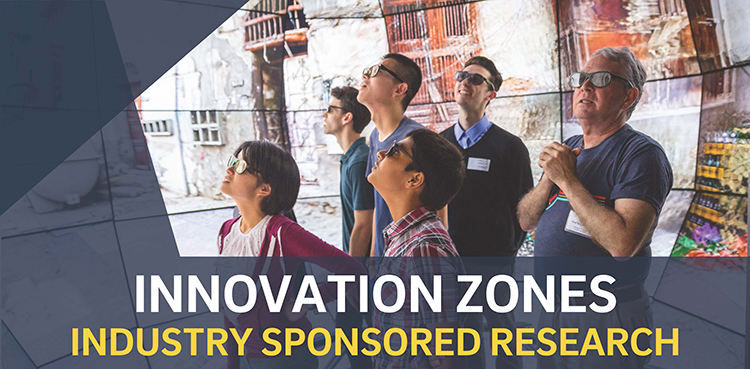
By:
- Danica M. Sirmans
Published Date
By:
- Danica M. Sirmans
Share This:
UC San Diego Streamlines Path to Commercialization

Cell and Developmental Biology Professor Yunde Zhao knows firsthand how grueling the pathway to licensing intellectual property can be. He has gone through the standard licensing procedure in the past and discovered, like many other researchers, that the process to reaching an agreement with commercial partners is no easy feat.
Feedback from the industry side revealed a similar sentiment. Traditionally, when companies express interest in investing in research, policy dictates that first the company must enter a research agreement. If a technology is realized and disclosed, the company may then have the opportunity to sit at the table to negotiate for a second time to reach a licensing agreement.
But the University of California San Diego is a campus of nontradition and, over the summer, UC San Diego’s Associate Vice Chancellor for Innovation and Commercialization Paul Roben put into place an alternative to address those grievances with a promise to streamline the process.
Hand in hand with UC San Diego’s Office of Contracts and Grants, and with the support of the UC Office of the President, Roben’s team launched a two-year pilot program to bring innovations from campus laboratories to companies more quickly and with less red tape. Called Innovation Zones, the program is the first of its kind within the UC system.
“It’s a much simpler process that removes a lot of the risk for companies,” said Roben. “As part of the drive to make it easier for companies to work with us, and access our innovations, we have also simplified our licensing agreements to what we now believe are the shortest licensing agreements in the nation.”
“In addition, we no longer charge startup companies, upfront, to license many of our technologies. We simply ask for 5 percent dilutable equity in the company, with no further obligations.”
“There were a number of motivating factors that got us talking bout this,” said Lisa Meredith, associate director for the Office of Contracts and Grants. “We’re making more relationships with industry than we’ve ever had before. Negotiating intellectual property and licensing terms in research agreements can be difficult. We want to simplify the negotiation process to strengthen relationships with industry to start off on the right foot by offering them multiple options that we hope they’ll take us up on.”
The historical model to license and commercialize a technology dictates that an invention is realized, then disclosed, then licensed. Companies have increased their insistence for present grants of licensing, which is initiated before the research even starts. Innovation Zones give them that option.
Brendan Daly, as a principal contract and grant officer with the Office of Contract and Grants, took a lead role in drafting the conditions of the policy, merging the worlds between research and licensing agreements.
“One of the challenges we faced in developing the terms of Innovation Zones was in trying to combine processes that were historically separate,” he said. “We received feedback from a lot of companies that they want an upfront license for the technology that’s coming out of the research that they’re supporting. Innovation Zones allows us to provide a present grant to the commercialization of this license.”
Professor Zhao is tapped as one of the principal investigators standing to gain from the program’s fresh approach to commercialization.
“I’m looking forward to working with companies who understand the value of our research,” said Zhao. “Sometimes the idea of the risk gets in the way of seeing the value. I think with Innovation Zones we’ll be able to avoid a lot of that and satisfy the needs of all involved.”
The new model guarantees a license to technology that does not presently exist. By providing an innovation payment with set terms divided into zones differentiated by level of exclusivity to license, companies now have the option to choose between predefined terms that adhere to UC and federal policies.
“An interested company can invest an innovation access fee, which is a percentage of the total research that they’re funding, and we will give them the option of different licenses at the frontend to any technology and intellectual property that might be created,” said Roben. “It’s automatic, the terms are built in. As soon as the researcher discloses that they’ve invented and created some intellectual property—it’s theirs.”
Before Innovation Zones’ development, UC San Diego already had more than 400 active licenses on campus and was recently recognized for its commitment to innovation, both on campus and throughout the region.
In April, UC San Diego was designated as a Changemaker Campus by Ashoka U, the world’s largest network of social entrepreneurs, for its role as a leader in social innovation education. Following up with the designation, the university is hosting on campus a Changemaker Day on Oct. 25. This cross-campus initiative is dedicated to creating positive social change through public and community service, research, social innovation, social entrepreneurship, social justice, impact investing and more.
More recently, the university earned national recognition for economic partnerships by the Association of Public and Land-grant Universities, a designation that fewer than 60 universities nationwide have achieved.
The partnerships to come from the university’s newest innovative initiative is expected to satisfy and answer the feedback from both industry leaders and researchers.
“We’re cutting down on timelines and cutting out the red tape,” said Roben. “We can take care of both of those things at one time with Innovation Zones and we’re looking forward to the partnerships to come.”
Share This:
You May Also Like
Stay in the Know
Keep up with all the latest from UC San Diego. Subscribe to the newsletter today.


